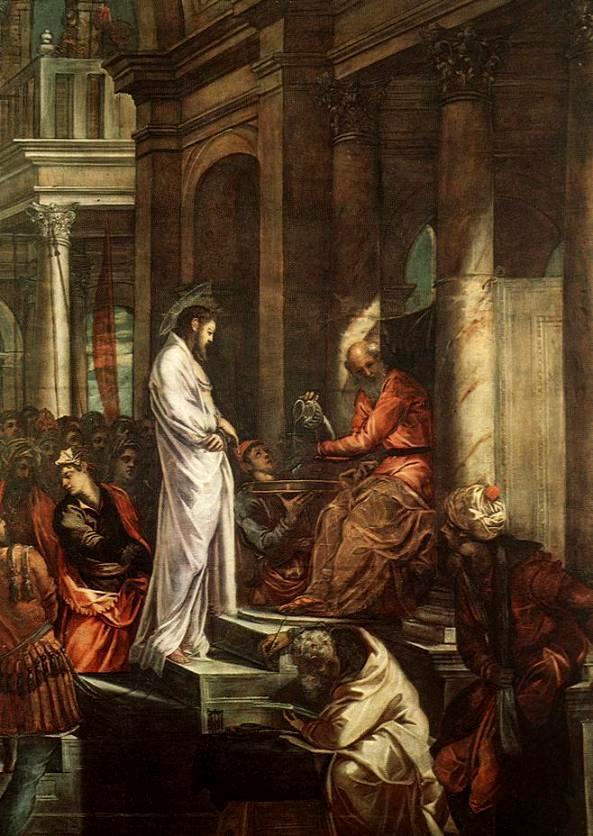Spiritual Sunday
Today’s Gospel reading brings to mind one of my favorite poems by William Cowper, reportedly Jane Austen’s favorite poet (and certainly Marianne Dashwood’s in Sense and Sensibility). I’m cannibalizing some of what I wrote about the poem in a previous post.
The Gospel reading features the famous dialogue between Jesus and Pilate (John 18:33-38). It’s one of those conversations where the participants have two entirely different frames of reference. Jesus, of course, understands this while Pilate is simply confused:
Pilate then went back inside the palace, summoned Jesus and asked him, “Are you the king of the Jews?” “Is that your own idea,” Jesus asked, “or did others talk to you about me?” “Am I a Jew?” Pilate replied. “Your own people and chief priests handed you over to me. What is it you have done?” Jesus said, “My kingdom is not of this world. If it were, my servants would fight to prevent my arrest by the Jewish leaders. But now my kingdom is from another place.” “You are a king, then!” said Pilate. Jesus answered, “You say that I am a king. In fact, the reason I was born and came into the world is to testify to the truth. Everyone on the side of truth listens to me.” “What is truth?” retorted Pilate.
Cowper references the passage in his long free-association poem The Task:
But what is truth? ’twas Pilate’s question put
To truth itself, that deigned him no reply.
Cowper sets out to answer the question. He does so by means of contrast in which he quotes Isaiah’s “all flesh is grass.” Much of what we celebrate and cling to is transitory:
All flesh is grass, and all its glory fades
Like the fair flower disheveled in the wind;
Riches have wings, and grandeur is a dream;
The man we celebrate must find a tomb,
And we that worship him, ignoble graves.
Nothing is proof against the general curse
Of vanity, that seizes all below.
Cowper then explains what is really important:
The only amaranthine flower on earth
Is virtue; the only lasting treasure, truth.
Why wouldn’t Jesus answer Pilate’s question? Cowper says it’s because Pilate wasn’t really interested in the answer. After all, God will joyously “impart His light to them that ask it.” If Pilate really wanted to know, Jesus would have told him. But because the Roman is “proud, uncandid, insincere” and “negligent” to boot, his question operates more as a dismissal:
And wherefore? will not God impart His light
To them that ask it?—Freely—’tis His joy,
His glory, and His nature to impart.
But to the proud, uncandid, insincere,
Or negligent inquirer, not a spark.
Cowper goes on to say that the author who writes a truthful book will reap contempt from such people. So will the truthful minister who, while bringing joy to those whose hearts are open, will be reproached by those who don’t want to hear his message:
What’s that which brings contempt upon a book
And him that writes it, though the style be neat,
The method clear, and argument exact?
That makes a minister in holy things
The joy of many, and the dread of more,
His name a theme for praise and for reproach?—
That, while it gives us worth in God’s account,
Depreciates and undoes us in our own?
Finally, Cowper compares Truth to Jesus’s “pearl of great price,” worth more than all one’s worldly goods. The rich man cannot buy Truth, and “learning”—by which Cowper means worldly sophistication—thinks it is beneath notice. After all, it won’t advance one’s selfish agenda.
The poor and despised recognize it, however:
What pearl is it that rich men cannot buy,
That learning is too proud to gather up,
But which the poor and the despised of all
Seek and obtain, and often find unsought?
Tell me, and I will tell thee what is truth.
Or as Jesus puts it,
[T]he reason I was born and came into the world is to testify to the truth. Everyone on the side of truth listens to me.


